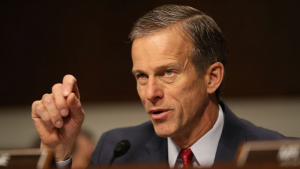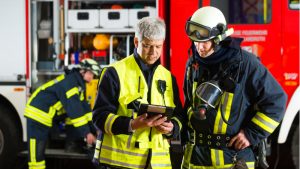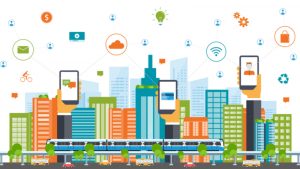The zero trust model of IT security has a wide range of applications from protecting government data to helping to secure election infrastructure, panelists said at the Akamai Government Forum on June 14.
Leadership of the Senate Commerce, Science, and Transportation Committee on Wednesday pressed the head of the National Telecommunications and Information Administration (NTIA) for necessary follow-up to passage earlier this year of the MOBILE NOW Act.
The Federal Communications Commission (FCC) on May 10 approved a notice of proposed rulemaking (NPRM) that could supply more spectrum to commercial carriers to provide 5G wireless services.
A new study finds that the public is warming up to the use of biometric identification technology, but remains wary of tracking applications and is looking to government to set standards in that area.
When shopping for smartphones and tablets, FirstNet was looking for something that could handle more than calling an Uber and snapping the perfect selfie.
Over the next 20 years, cities around the world will invest roughly $41 trillion to upgrade their infrastructure to benefit from the Internet of Things (IoT), according to the Smart America Challenge forecast. However, money doesn’t grow on trees and not all smart city projects have the same RoI–so cities need to make sure they invest wisely.
AT&T and the First Responder Network Authority recently announced the launch of the FirstNet network core. With the launch, first responders now have nationwide access to a specialized communications system designed to meet their unique needs.
Most government IT managers grasp the concept of automation, the use of technology to perform a process or procedure without human assistance. However, do they really understand the role of automation, and how it can be applied to accelerate delivery and management of IT resources and applications, especially in this era of multi-clouds?
The Centers for Medicare & Medicaid Services (CMS) want to modernize, but are being held back by a vestige of the 20th century–clunky, outdated technology platforms.
Every year the National Association of State CIOs (NASCIO) releases its State CIO Top 10 Priorities. While the recently released 2018 list has a few predictable entries, it comes with a few surprises, too.













